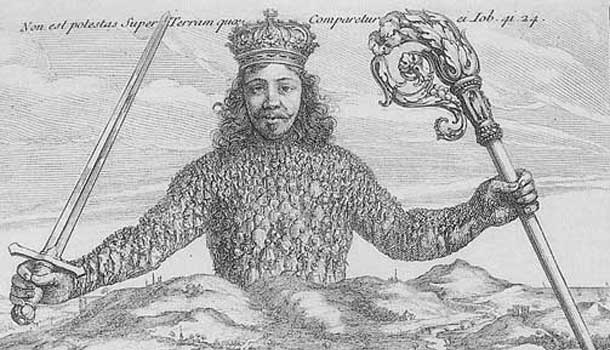Yotel New York
August 15, 2011
Food for Thought
December 1, 2011”J’accuse…ACTION THIS DAY.” Before the UN, NATO, or the myriad array of international organizations that crowd the world stage today with their impressive sounding acronyms and unimpressive track records ever existed, there was that notable failed experiment known as the League of Nations. Fail it did and ignominiously so. Just as the planet verged on the most colossal conflict in human history, the League distinguished itself by its singular inaction toward Fascist aggression.
Haile Selassie, the exiled Ethiopian Emperor, received thunderous applause as he addressed the League at its seat in Geneva. Selassie made an impassioned plea for concerted international action to save his nation from Mussolini’s ferocious bid to build a new colonial empire in Africa. But applause and a few laudatory newspaper articles were all the Emperor walked away with. Mussolini’s deputy commander in East Africa, the decidedly bloodthirsty Rodolfo Graziani meanwhile promised to deliver Ethiopia to Il Duce, as he put it, “with or without Ethiopians.” Beginning in October 1935, the conquering army slaughtered the hopelessly outclassed but suicidally brave Ethiopian warriors and their horses with mustard gas, armour, flamethrowers and air power. Mussolini’s son, an air force pilot, wrote sickening entries in his diary on what beautiful, flower-like patterns his bombs made on massed Ethiopian fighters.
In July of 1936 Francisco Franco, at the head of the Army of Africa had launched his rebellion against the Spanish Republic. The German Luftwaffe had helped to speed Franco’s betrayal ferrying his fierce Legionaries and Moroccan mercenaries from Spanish Morocco to the mainland. In time after carrying out the first major airlift in the annals of warfare, German pilots of the Condor Legion would give the world the first example of terror bombing by launching a fearsome incendiary aerial attack against the ancient Basque city of Guernica, a horror later immortalised by Picasso’s masterful paintbrush.
We know the rest. While volunteers from Europe and America flocked to fight in the International Brigades of the Republican Army, in the early days of the Republic’s heroic but doomed struggle for survival, only Lazaro Cardenas’ revolutionary Mexico stood by her. The same so-called Great Powers that made up the core of the League’s muscle—France, Britain and the United States—adopted a spurious neutral position towards the Spanish Civil War. It was neutrality that barely masked their antipathy for a populist government which had so adamantly renounced the socioeconomic status quo that prevailed in the West.
The strict enforcement of an arms embargo and naval blockade by these non-combatants ensured Republican Spain would be starved of the means to defend itself. The late arrival of an opportunistic Soviet Union, only confirmed the League’s fears of a “Red” Spain at the heart of Europe. By contrast Franco’s Nationalist forces had all the material support they needed from Hitler and soon after Mussolini, who also sent a sizeable army to fight alongside the Spanish Fascists. And so the Spanish Republic died, almost inevitably. The great democracies failed utterly, only to fight the same jack-booted enemy in the Second World War, just as the Spanish slaughter was ending, three years later. So too died the League in 1939, a pathetic footnote in history, defined by the gross negligence and indifference of what today we label the International Community.
An echo of this great sin of omission was heard again in the former Yugoslavia more than a half century later. The US, the European Union, NATO and the UN observed a strict neutrality that left Bosnia gasping for air, while a well armed Serbia and Bosnian Serbs did their worst. Only when the spectre of potentially coming to blows with Moscow emerged, did the West act decisively, bringing a grudgingly cooperative Russia symbolically on board, and rather swiftly putting an end to the conflict.
So where to now? What have we learned or done since Bosnia? How strong is the moral pulse of the Western democracies, which still purport to take the dominant leadership role in the world? Where does action match the lofty ideals of our liberal societies? How worthy are the multilateral mechanisms of our global community? How strong is the moral imperative supposedly anchoring the likes of NATO and the UN in recent history? The Rwandan genocide saw Western peacekeepers exit hurriedly after white foreigners could be evacuated. The local Tutsis were abandoned, to be butchered by the machetes of the Hutu Interhamwe militias as the UN dithered in New York, and Washington prevaricated over the literal meaning of genocide, seeking semantic alternatives to sugar-coat a word it didn’t want to use, since recognising “genocide” meant it would have to act. When the full dystopian evil of Rwanda came to light, there came a resounding “NEVER AGAIN” from those that did nothing. But the slaughter in Darfur today proceeds apace and a genocidal campaign waged by the regime in Khartoum has now expanded into the central highlands of Sudan. The combined AU/UN peacekeeping force there remains a toothless lion with a weak mandate, barely able to defend itself, with no change in sight. Meanwhile, in Somalia and much of East Africa a new famine of epic proportions is underway. Millions face the prospect of starving to death, but only a trickle of aid reaches the neediest when a swift, massive effort is needed. An AU force in Somalia does its best to confront the warlords and protect and feed civilians trapped in the crossfire, but how much more could it do had it meaningful help from the outside, from those that have the means?
Further north on the African continent the Arab Spring has not lost any of its momentum. NATO has fought a war in Libya alongside the brave amateurs of a resistance army that couldn’t stomach Gadaffi’s brutal misrule any longer. The mad colonel has now met the fate of dictators from Mussolini to Ceausescu. It’s certainly been a very picturesque war, very photogenic, the columns of rebel technicals setting out to do battle evocative of the Allied desert raiders in World War II who once trod the same ground. And of course there is all that oil to safeguard, or rather Libyan democracy.
But what of Syria, which is by far the worst bloodbath in the whole of the North African and Middle Eastern uprising? It is, bar none, the most savage crackdown by any of the enduring police states in the region that refuse to yield to the will of the people. It is likely, at a conservative estimate, that 5000 unarmed civilians have so far been cut down by the Syrian military and security forces. It is not a matter of tear gas, truncheons and fire hoses. A defenceless people are being butchered with the full weight of the firepower a modern army brings to bear: tanks, cannon, heavy machine guns, fighter planes and helicopter gunships. Government snipers are using dum-dum hollow point ammunition and are under orders to take head shots. The torture chambers are working around the clock, and evidence is increasingly emerging that mass rape, as in Chechnya (does anyone even remember Chechnya?) the former Yugoslavia and Darfur, is now a systematic instrument and authorised tool of government repression.
But the UN Security Council is surprisingly silent. The ICC has not taken even any paper action against President Assad, surely now as great a vampire as his own father—a man who, by contrast, makes Gaddafi seem like an unpleasant schoolmaster. But Syria is not even remotely an item on NATO’s agenda. Silence reigns in all the capitals of the alliance. In Syria, fascism prevails and the great democracies look on as they once did, at great cost and to their eventual shame.
Are we then that much more evolved since the League of Nations was born and not least since the Universal Declaration of Human Rights was ratified? Can we, the West, in all earnestness still claim to be the conscience of the civilised world? The compass bearing of our limp moral leadership and glaring inaction registers at this juncture in history as a resounding “No”, more worthy of 1936, than the new millennium. What will be our debt when we will be held to account for reprising the moral flexibility of our grandfathers?




